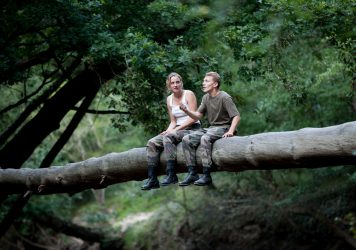This sublime teen romance evokes the heady passions that come from choosing between love and learning.
Published 15 Mar 2018
This director certainly has his off films, but the good ones are sensational.
And this is one of his absolute finest. Such mastery, such passion, such control.
Don't be put off by the subtitles – this is one of the great modern teen movies.

Director Mia Hansen-Løve delivers something wonderful and somewhat unexpected – a film about cats.

A bizarre choice of opening film for the 2017 Cannes Film Festival, but also an invigorating and impulsive one too.

Adèle Haenel’s ingenue allure elevates Thomas Cailley's sweet-natured survivalist romance.